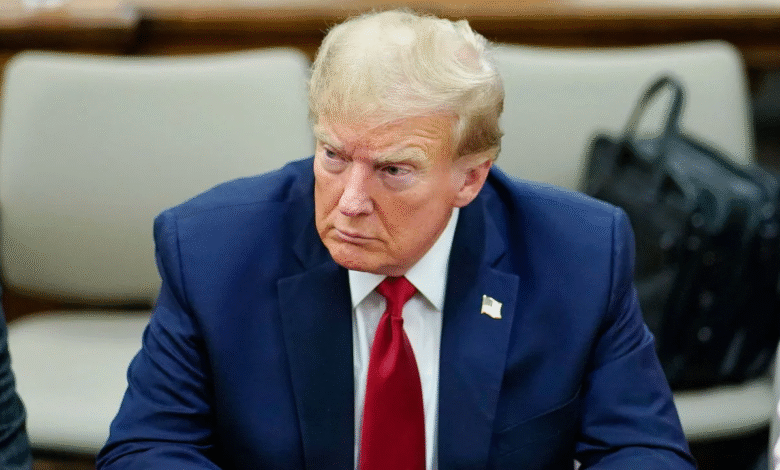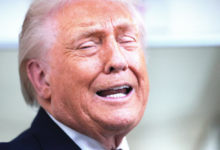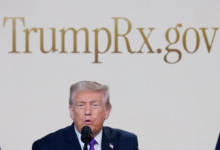Odds of Trump Winning Key SCOTUS Case Tank After Terrible Start
Betting markets showed a sharp drop in the president’s chances in his tariffs case after the justices heard arguments Wednesday.

The chances of the Supreme Court upholding President Donald Trump’s flagship economic policies fell sharply on Wednesday after two key justices expressed skepticism about the government’s arguments.
Electronic trading data showed that the probability of a Trump-favoring ruling in the two appeals against his drastic tariffs dropped to nearly 50 percent after the hearings.
On PolyMarkets, the probability of a Trump-favoring ruling fell from 50 percent to 25 percent between Wednesday afternoon and Thursday morning.
Kalchi saw a slight, though still modest, improvement, rising from 46.5 percent before the hearing to just 28 percent afterward.


Trump Jr. sits on PolyMarkets’ advisory board and is a strategic advisor to Kalchi.
During Wednesday’s arguments, the two justices who could tip the Supreme Court’s decision—Chief Justice John Roberts and Justice Amy Coney Barrett—raised a series of pointed questions about the president’s actual authority to unilaterally impose tariffs on dozens of trading partners.

The administration argued that the tariffs imposed by Trump were authorized by the International Emergency Economic Powers Act (IEEPA), which grants presidents the power to regulate international trade in response to any unusual or extraordinary threat to the United States.
The White House asserted that Trump could impose these tariffs in response to the dual “national emergency” of the trade deficit and the fentanyl crisis.
However, two lower courts ruled that the law did not authorize Trump to bypass Congress and impose these tariffs.
Meanwhile, tariffs—a form of import tax paid by American companies, which must absorb the additional costs or pass them on to consumers—were maintained throughout the appeals process.
The president has adjusted tariff rates up and down to sanction, reward, or pressure foreign countries on issues unrelated to fentanyl or the trade deficit.
Roberts, appointed by President George W. Bush in 2005, emphasized on Wednesday that the power to impose tariffs “has always been a core power of Congress.”
He added that the “central question” principle, a legal principle requiring Congress to grant federal agencies explicit authorization to act, appears to apply in this case.

Trump’s nominee, Amy Coney Barrett, did not appear convinced by Attorney General John D. Sauer’s arguments, presented on behalf of the administration, that the law authorizes the president to impose tariffs.
Since a federal appeals court struck down a significant portion of the president’s tariff policy in August, Trump has spoken out on the issue in alarmist terms, warning on social media that without his tariffs, “our country could degenerate into a Third World country.”
He wrote on Monday: “The tariff case that will be heard next week is one of the most important in the history of our country. If the president were not able to use his tariff power swiftly and skillfully, we would be defenseless, and it could lead to the destruction of our nation.”
But, unusually for the Trump administration, conservatives, progressives, and business organizations opposed to the tariffs have written several briefs supporting companies challenging them.
The White House is preparing a contingency plan in case the tariffs are reversed.







